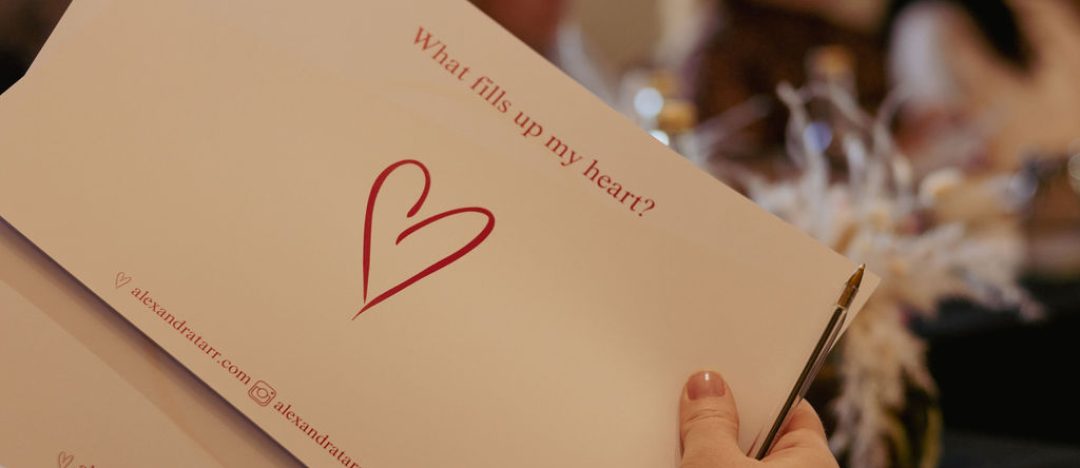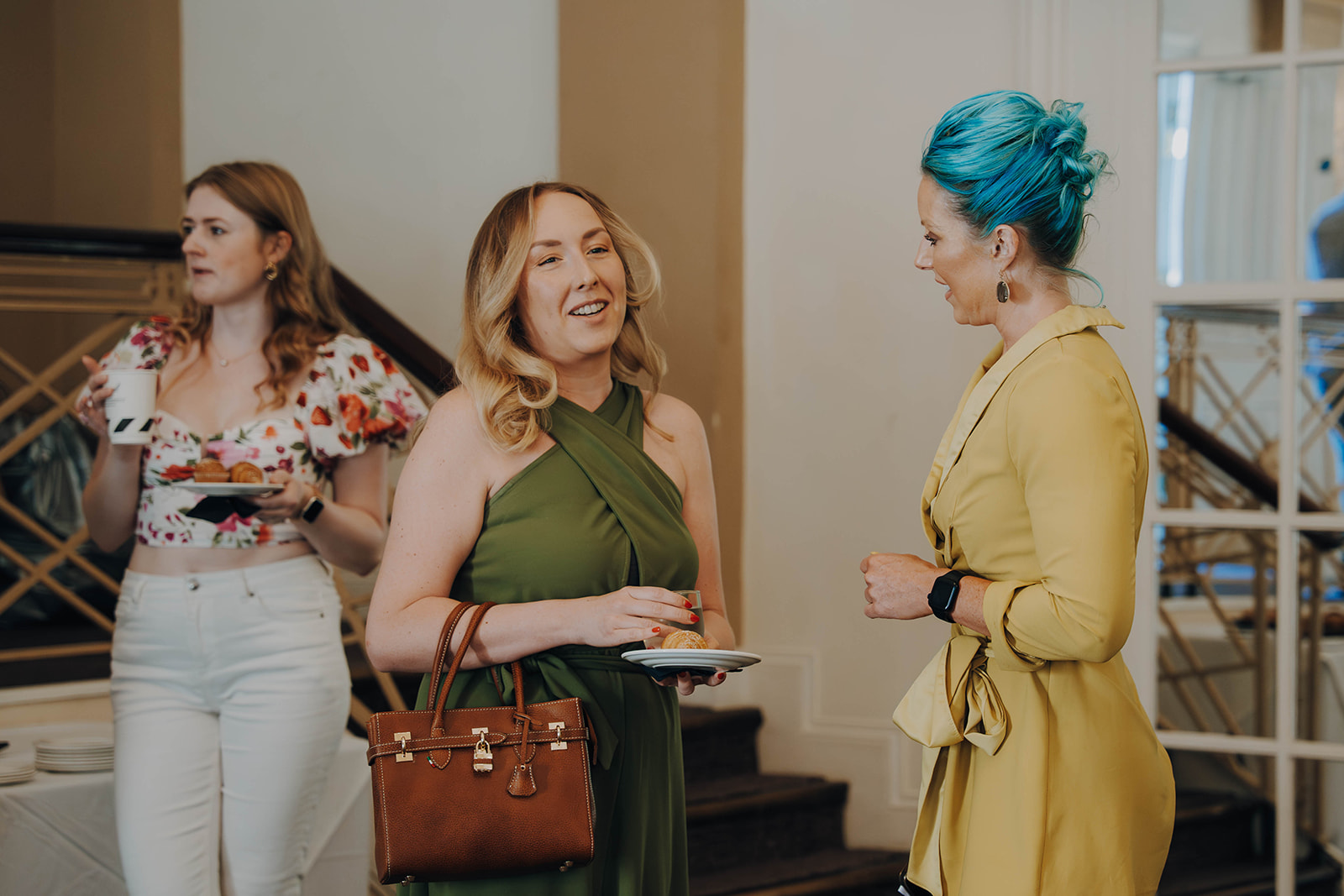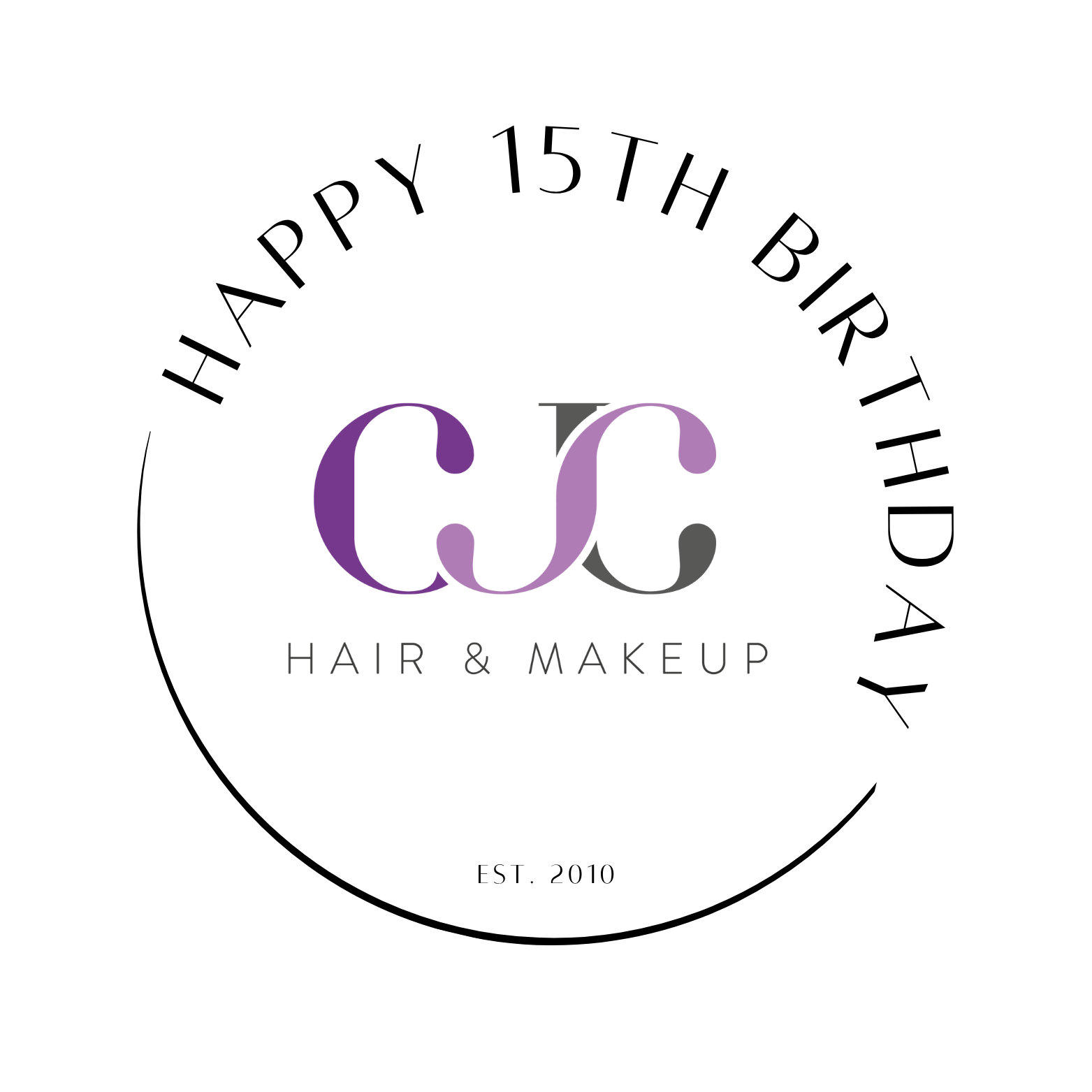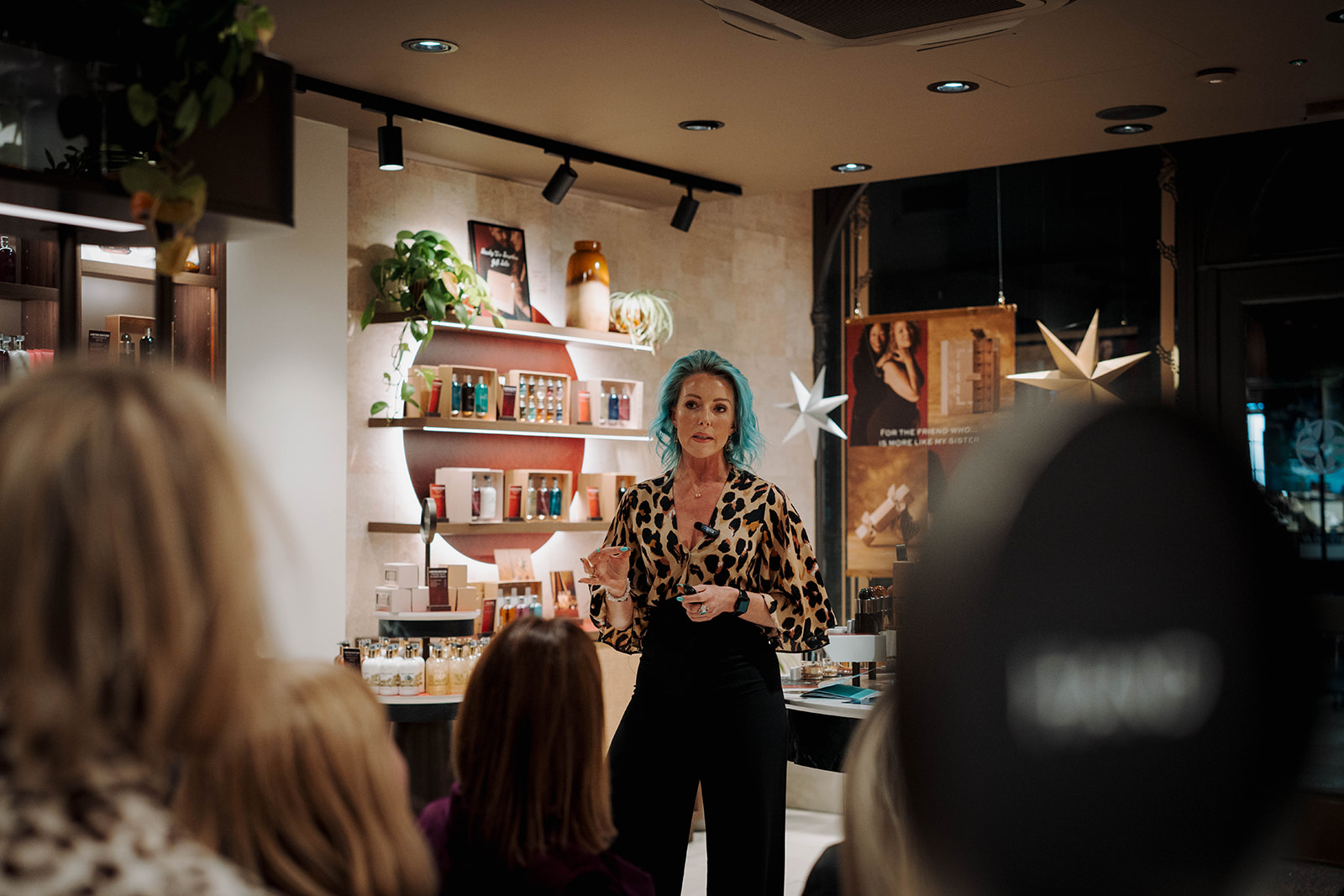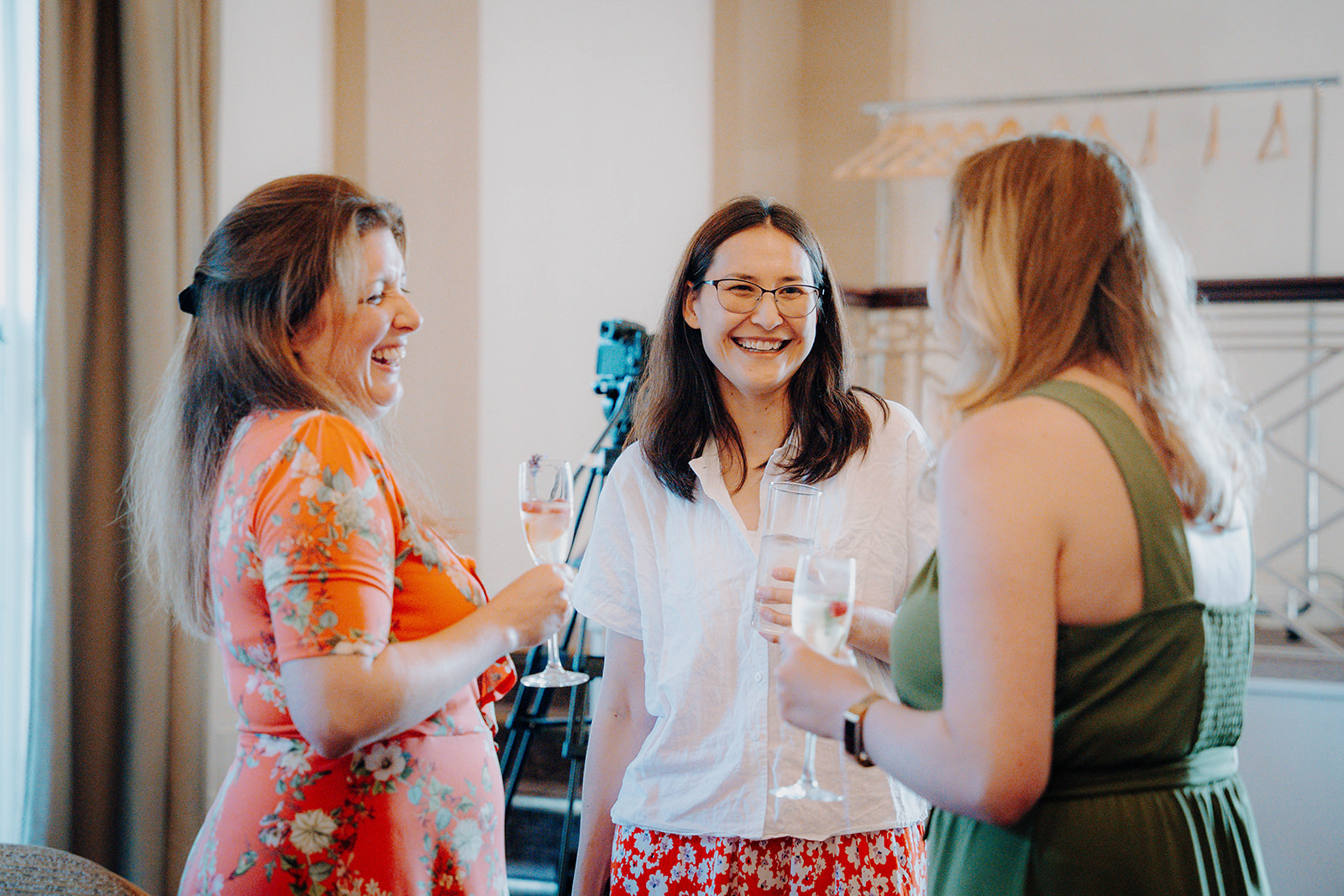For years, I swore, “I don’t care what other people think.”
That was the story I kept repeating to myself. It sounded strong, it sounded independent, it sounded like I was free from judgment.
But when I started journaling, I realised… I really did care. A lot, actually.
I was making choices based on other people’s opinions all the time. What I wore, what I said yes to, how I showed up both on and offline, so much of it was filtered through an invisible subconscious lens of “What will they think?”
Owning that truth was uncomfortable. In fact, it felt like admitting a weakness I didn’t want to admit. But it was also freeing, because once I saw it clearly, I could start choosing differently. I could make decisions for me, not for the imaginary audience in my head.
Another big one for me was overwhelm. For years, I told myself, “I just have too much on my plate.” That was my go-to story whenever I felt stressed. But the more I wrote and reflected, I realised it wasn’t really the workload that was crushing me. It was the pressure I was putting on myself to do everything perfectly. The overwhelm wasn’t in my schedule; it was in my standards.
And the moment I lowered the bar even slightly, I was able to overcome the analysis paralysis and procrastination. The work was still there, the responsibilities were still there, but I was carrying a lot less “weight.”
That’s the power of journaling. It helps us peel back the layers of the stories we tell ourselves.
Peeling the Onion
In Shrek, Donkey says, “Ogres are like onions” … but we’re all like onions, really.
On the surface, we think we know what the issue is: too much stress, not enough confidence, feeling stuck, struggling to “balance it all.”
But peel back a layer or two, and the truth begins to reveal itself as something different.
That peeling process can be uncomfortable. Sometimes it stings. Sometimes it makes us cry. Sometimes it brings up truths we’d rather not face. But if we stick with it, we uncover the deeper stuff – the hidden fears, the unhelpful beliefs, the old patterns we’ve been dragging around without realising.
And once we see those clearly, we can finally do something about them – we can’t change what we can’t see.
Why Journaling Better Questions Matter
The quality of the questions we ask ourselves determines the quality of the answers we find.
If I ask myself, “Why am I so overwhelmed?” I’ll probably get a surface-level answer: because I’m busy, because I’ve got too much on, because life is stressful.
But if I ask myself, “What pressure am I putting on myself that I don’t actually need to?” or “Where am I holding myself to impossible standards?” then suddenly I’ve got answers that actually move the needle.
That’s what journaling does. It pulls us out of autopilot and slows us down long enough to ask the better questions, the ones that take us beneath the surface and the noise.
The Stories We Tell Ourselves
Over the years, I’ve noticed we all tend to fall back on the same kinds of stories:
- The Confidence Story. “If only I felt more confident, I’d finally put myself out there.” But when you dig deeper, it’s not confidence that’s missing; it’s the fear of judgment that’s holding you back.
- The Motivation Story. “I just need more motivation.” But it’s rarely about motivation; it’s usually about clarity. If you don’t know what you truly want, of course, you’re not able to move forward.
- The Balance Story. “I need better work-life balance.” But it’s not balance you’re lacking, it’s boundaries. Without them, nothing feels steady.
- The Overwhelm Story. “I just have too much to do.” But in truth, it’s not about the workload; it’s the weight of your own impossible standards.
These surface-level stories feel convincing. They’re the first answers that come to mind, but journaling helps us ask the next question, peel the next layer, and see the truth underneath.
The “Yes” Habit
Our lives are busy, we naturally overstretch ourselves, and even when we reset and create space in our lives, it’s not long before things start getting busy again, so one question I ask myself often is: “Where am I spreading myself too thin, and what can I say no to this week?”
When I write about this honestly, I can see straight away where I’ve been overcommitting. And it’s rarely in the big obvious areas. It’s in the little things I kept agreeing to without thinking. Coffee catch-ups I didn’t really have the headspace for, extra bits of work I didn’t actually need to take on, the next business growth hack I saw on LinkedIn or Instagram… it’s all those little things I said yes to out of excitement in the moment, or out of guilt, or just unconcious habit.
Individually, those yeses don’t look like much. But collectively, they distract and drain your energy until you’re running on empty.
The first time I wrote it down and really looked at it, I felt silly. It was so obvious, yet I hadn’t noticed.
Writing it down allowed me to see it clearly, which made letting go of it a lot easier. And when I said “no,” it created more breathing room and energy and brought me back to calm and focus.
It was uncomfortable, yes. Saying no or backtracking on plans always is. But the relief and rewards on the other side were worth it – short-term pain for long-term gain.
Building a Journaling Practice
Journaling doesn’t have to be complicated. You don’t need a special notebook (although if that encourages you to use it then go for it!) or a set time of day. You don’t need perfect handwriting or even full sentences. You just need to show up with a pen, some paper, and the willingness to be honest with yourself.
Sometimes you’ll write pages. Sometimes you’ll write three words. Sometimes you’ll circle around the same thought for days (in my case this happens a lot of the time) and sometimes, in a single line, you’ll stumble across an insight that shifts everything.
The key is consistency. The more often you sit with yourself and your thoughts, the easier it becomes to spot the patterns. To catch yourself in the stories. To ask yourself better questions.
Because journaling isn’t about keeping a perfect diary. It’s about peeling the onion. It’s about facing the truths we’d rather ignore, so we can stop spinning on the surface and actually start to move forward.
Better Questions Lead to Better Answers
The thing you think is keeping you stuck probably isn’t the actual thing. It’s always a few layers deeper. And while that can be uncomfortable to uncover, it’s also the most liberating thing you can do for yourself.
When you’re brave enough to peel back the layers – to admit you do care what people think, or that your overwhelm is actually self-imposed pressure, or that your lack of confidence is really a fear of judgment – you suddenly have something you can work with.
It’s not always easy. Yes, there might be tears and frustration, but at the core of the onion is you, your authentic self, free from the stories and excuses that keep you circling on the surface.
And the simplest way to start peeling? Ask yourself better questions. Sit down with a notebook, let the words come out, and be willing to look underneath the obvious answers.
We refer to journaling as a ‘practice’ because it is. You need to practice it consistently to get better at it. Over time, you get better and quicker at it – you get better at questions which lead to better answers.
And better answers lead to freedom, clarity, and a life that feels more like yours.
Happy Journaling!
If you’re in need of journal prompts, I highly recommend checking out my friends Sam’s and Freddie’s Evolve Journal HERE
